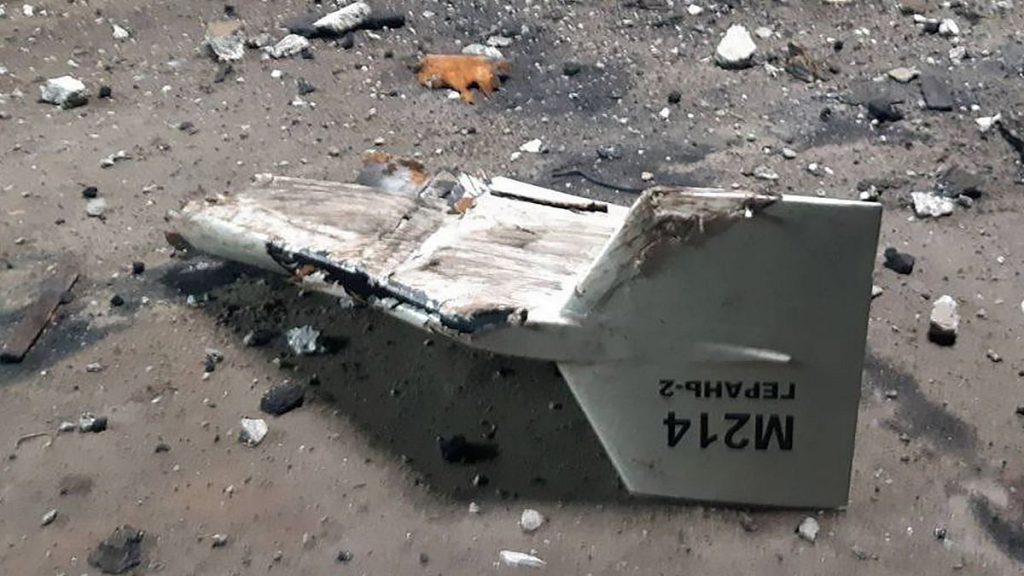A Russian strike on a nine-story apartment building in Kharkiv resulted in at least six people being injured, including a 16-year-old girl. Rescue operations were carried out by emergency crews in the early hours of Monday as three apartments on the upper floors were destroyed. In Kherson, two men were killed, with one elderly man being targeted by a drone dropping explosives and another killed by artillery fire. Russia’s Ministry of Defence reported shooting down 21 Ukrainian drones targeting various regions, causing injuries and damage, including a fire at an industrial facility in the Voronezh region. Two explosions near an ethanol plant in Krasnoye were also reported, although these claims could not be independently confirmed.
Following Bulgaria’s parliamentary election, the centre-right GERB party emerged as the winner, with the pro-Russia party Vazrazhdane receiving a weaker result than predicted. Vazrazhdane, a far-right, ultra-nationalist party, has called for lifting sanctions against Russia, ending support for Ukraine, and holding a referendum on NATO membership. The party has been isolated in parliament, but its increased appeal could potentially shift Bulgaria’s pro-Western stance if mainstream parties fail to resolve the political deadlock. Lithuania’s newly elected government announced plans to spend at least 3.5% of its GDP on defense amid concerns about Moscow’s intentions, particularly regarding the Baltic region. In the US, Republican vice-presidential nominee JD Vance stated that while Moscow is an adversary, approaching Russia as an enemy may not be productive. He affirmed the Trump administration’s commitment to NATO as a defense against further Russian aggression in Europe and emphasized the importance of maintaining diplomatic relations with Russia.
The aftermath of the Russian strike on the apartment building in Kharkiv and the killings in Kherson highlight the ongoing violence and humanitarian crisis in Ukraine. The conflict between Russia and Ukraine has resulted in numerous casualties and significant damage to infrastructure, further exacerbating the already dire situation in the country. The attack on the apartment building underscores the indiscriminate nature of the conflict, with civilians bearing the brunt of the violence. As the situation continues to escalate, the international community must intensify efforts to bring about a peaceful resolution to the conflict and provide support to those affected by the violence.
The results of Bulgaria’s parliamentary election and the potential shift in the country’s foreign policy towards Russia reflect the broader geopolitical dynamics in Europe. The rise of ultra-nationalist and pro-Russia parties in Bulgaria and other European countries poses a challenge to the current pro-Western orientation of the region. The increasing tensions between Russia and NATO countries, as evidenced by Lithuania’s decision to increase defense spending, underscore the need for a unified and coordinated response to Russian aggression. JD Vance’s comments on approaching Russia as an adversary rather than an enemy highlight the complexities of dealing with Russia and the importance of diplomacy in addressing international conflicts.
The implications of the ongoing conflict in Ukraine and the broader geopolitical shifts in Europe have far-reaching consequences for regional stability and security. The rise of nationalist and pro-Russia parties in European countries poses a challenge to the current international order and could potentially lead to further destabilization in the region. The need for a coordinated and unified approach to address Russian aggression and support Ukraine in its fight for sovereignty and territorial integrity is paramount. The international community must remain vigilant and actively engage in diplomatic efforts to de-escalate tensions and prevent further violence in the region. JD Vance’s comments on the US approach to Russia reflect the complexities of dealing with an adversarial relationship while maintaining diplomatic channels for dialogue and cooperation.















